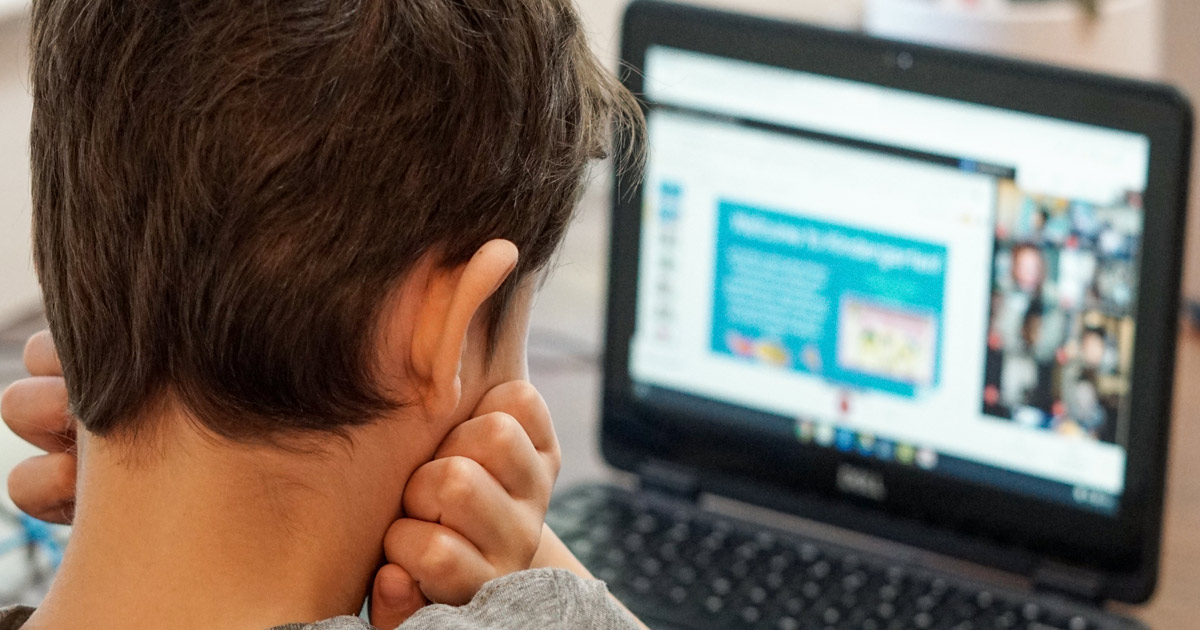Virtual learning during the Coronavirus (COVID-19) pandemic has had a major impact on the ability to notice signs of child abuse and neglect. Effectively detecting abuse in virtual learning settings has been challenging for teachers. As schools went online at the beginning of the COVID-19 lockdowns, at-risk students in underserved communities concerned teachers and administrators. Many were worried that these students would fall behind in their education.
Additionally, many people were concerned about how schools would support these students, especially when it comes to counseling services and school meals. Counseling offered by schools makes a vital difference in coping mechanisms for students and their families. Food provided during the school day is essential for some children.
How are Schools Adapting to Student Needs?
Teachers can identify and report suspected child abuse and neglect. The virtual learning environment is complicating the ability to protect vulnerable children. Since the beginning of the school closures in March, there have been many adaptations made to accommodate student needs. School administrators and classroom teachers have shifted their actions to support their students. Regarding child abuse and neglect, teachers are trying to remain attentive and cautious about their home situations.
How can Teachers Recognize Abuse?
For teachers who are concerned about the safety of home-based students, there are a few suggestions available to help with observation. Established signs of abuse and neglect include visible bruises and other physical injuries, as well as obvious signs of hunger or lack of appropriate personal hygiene. Remote learning has caused teachers to be able to see into the homes of their students, which allows them to have different perspectives. A teacher can get a sense of the living environment of a student, which may ignite concerns over safety or unhealthy sanitation. A teacher may also become aware that children are not being supervised properly.
Some of the physical indicators that should concern teachers include:
- Bruises, cuts, burns, broken bones, or other injuries.
- Physical discipline.
- Overheard yelling, belittling, or mental abuse.
- Indication that there is not enough food in the house.
- Problems with virtual attendance or widespread missing work.
- Concerns about the child’s personal hygiene or unsanitary surroundings.
- Parents or household members abusing drugs or alcohol.
It is not uncommon for a student to approach a teacher about an abusive situation; however this is hard to do in a virtual learning setting. It can be extremely difficult for them to reach out for help. Due to this, teachers should be on the lookout for signs of abuse or neglect.
Common Signs of Child Abuse or Neglect
A virtual teacher should be cognizant of the following signs that indicate a student may be in danger:
- The student displays sudden and drastic changes in their typical behaviors.
- A child who was once inquisitive and active in the classroom begins to withdraw.
- The child becomes extremely submissive or introverted.
- The student appears to have no adult supervision in the home.
- The student seems afraid or anxious, especially when someone approaches them in the room.
- The child displays or discusses signals that indicate that they are chronically hungry.
- The child seems to be suffering from unattended medical or health issues.
- The child’s needs are not being met when it comes to physical or emotional issues.
- The home environment seems unfit due to uncleanliness or exposure to dangerous conditions.
- People or activities observed in the home seem questionable or problematic.
- The parent is dismissive of the child or indifferent to the teacher’s concerns.
- The parent is unwilling to discuss options for services to support the child.
- The parent pressures the child with unrealistic expectations.
What if a Parent is Falsely Accused of Abuse or Neglect?
Even in a virtual learning environment, a teacher plays a critical role in recognizing signs of child abuse or neglect. Looking out for signs of abuse is extremely important and should be reported; however, teachers can misconstrued situations. If a parent is falsely accused of abuse, there are legal options available to them.
Once a parent learns they are being accused, it is vital that they contact a lawyer about their situation, especially if the Division of Child Protection and Permanency (DCPP) completes an investigation. Child abuse allegations are serious, and a lawyer can protect the parent’s rights.
Haddonfield DCPP Lawyers at the Law Offices of Theodore J. Baker Defend Parents Against Allegations of Child Abuse and Neglect
Virtual learning creates hardships for many parents. If you are under investigation for allegations of abuse or neglect, you should speak to one of our Haddonfield DCPP lawyers at the Law Offices of Theodore J. Baker. Our lawyers help falsely accused parents understand their rights. Contact us online or call us at 856-795-9400 for an initial consultation today. Located in Cherry Hill, New Jersey, we proudly serve clients throughout South Jersey, including Haddonfield, Marlton, Medford, Moorestown, Mount Laurel, and Voorhees.










